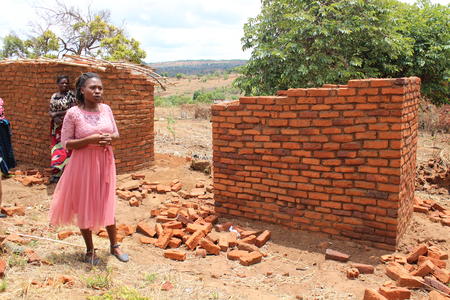WATERAID TO PROVIDE WASH FACILITIES TO THREE ADDITIONAL HOSPITALS IN NTCHISI

By Ulemu Mbengwani
WaterAid Malawi is expected to provide comprehensive Water, Sanitation, and Hygiene (WASH) packages to three health centers in Ntchisi district through the second phase of Wimbledon’s 150 Health Care Facility (HCF) challenge. The three facilities that will benefit from the project are Chinkhande, Sambakusi, and Chandawe health centres. Each health facility is expected to receive toilets, bathrooms, an incinerator, a placenta pit, an ash pit, and a refuse pit.
A WASH technical assessment that was conducted in these health facilities revealed that they are currently facing acute WASH challenges which need urgent intervention. Sambakusi health facility serves a catchment population of over 10,000 people. Halim Soko is the facility in-charge and he admitted that they are facing challenges.
“We face several challenges, with the primary concern being the shortage of water. This compels us to commence our work late as we depend on community members to fetch water from the borehole before hospital activities can begin. The scarcity of water not only impacts our operational efficiency but also undermines hygiene at the hospital premises, given that essential tasks such as cleaning our already limited number of toilets become increasingly difficult” said Soko.
Christina Mbalame, Chief of Sambakusi, echoed Soko's concerns, emphasizing that the scarcity of water is not only impacting the hospital's facilities but is also hindering access to maternal services. The absence of a reliable water supply poses a significant challenge to the community's overall well-being. Furthermore, Mbalame highlighted the urgent need for comprehensive solutions to address both the water shortage and the accessibility issues related to maternal services.
“The hospital's most significant challenge is the lack of water. Our maternity section, completed seven years ago, remains non-operational due to this issue. Urgent attention is required to address this problem because our women are compelled to travel all the way to Ntchisi District Hospital for maternity services. There have been instances where women give birth on their way to the hospital, resulting in tragic outcomes for babies. Addressing the water problem would prevent such scenarios. Moreover, the high transportation costs from here to Ntchisi DHO add to the burden. Women arriving there must also have enough money to sustain themselves” said Chief Sambakusi.
Despite having water, though unreliable and insufficient, Chandawe Health Post on the other hand, is largely struggling with sanitation facilities. According to Esther Pondani, the Facility In-charge, the hospital faces a shortage of toilets, leading to the staff having to share their toilet with patients. The community, supported by the Health Centre Management Committee (HCMC), is making efforts to address this issue by constructing toilets, but they are constrained by limited resources. This challenge hampers their ability to promote hygiene and advocate for the construction of toilets in community households, as they lack proper toilet facilities themselves.
The first phase of the project supported four healthcare facilities in the district: Ntchisi District Hospital, Kangolwa, Nkhuzi, and Khuwi. The second phase was officially launched on October 1, 2023, and construction works are anticipated to commence early next year. It is a four-year project, spanning from 2023 to 2027, with a budget exceeding 2.5 billion Kwacha. It is part of WaterAid’s flagship program, the 150 Healthcare Challenge, where WaterAid Malawi has pledged to directly enhance WASH in 75 (HCFs) and mobilize other stakeholders to support the remaining 75. To date, WaterAid has already supported 60 healthcare facilities across the country.







